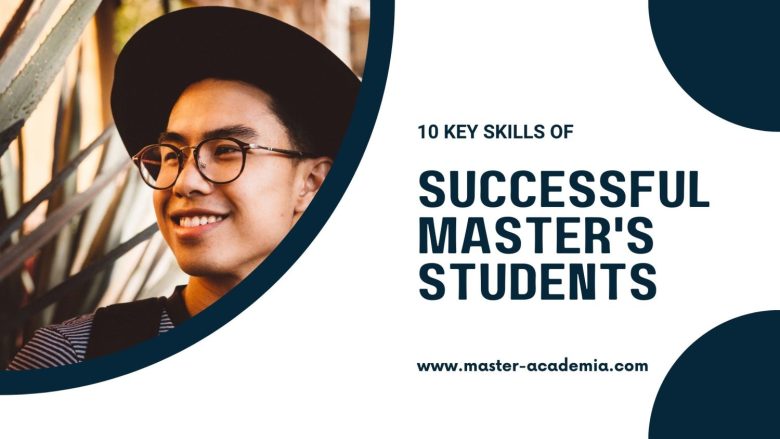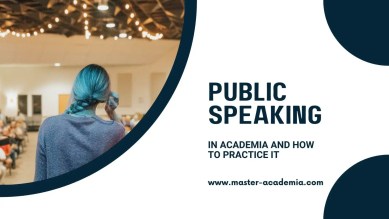
Following a master’s programme is an exciting time. What are the skills that make master’s students successful? There are ten key skills that set successful master’s students apart and help them to make the most of their journey.
Disclaimer: This post may contain affiliate links, which means I may earn a small commission if you make a purchase using the links below at no additional cost to you. I only recommend products or services that I truly believe can benefit my audience. As always, my opinions are my own.
Contents
#1 Independence
Following a master’s degree requires students to be more independent than during a bachelor’s degree. Of course, they will get instructions or guidelines, for instance from lecturers or thesis supervisors. However, the general expectation is that master’s students complete tasks with less direction or supervision than bachelor’s students.
Successful master’s students can live up to this expectation and showcase their ability to work independently. They are resourceful and try to take matters into their own hands before reaching out for assistance.
#2 Critical thinking
Doing a master’s degree does not mean learning information, provided by someone else, by heart. Instead, master’s students are much more expected to think critically about information, reflect and to identify biases.
Successful master’s students are critical thinkers. Critical thinking is a skill that can be acquired, and entails logic reasoning, a healthy dose of scepticism and the ability to consider different positions and viewpoints.
#3 Collaboration
The skill of collaborating effectively provides the foundation for good relationships with others and can open many doors (also in terms of job opportunities in the future).
Successful master’s students know that collaboration is better than competition. They understand that different people have different strengths, and that good teamwork is the key to success. They showcase this skill in successful group projects throughout their studies.
#4 Intrinsic motivation
Successful master’s students don’t get discouraged by the occasional bad grade or criticism. Instead, they are intrinsically motivated to learn and to make the best out of their time as students.
Intrinsic motivation means that master’s students study because they consider the activity of learning and developing themselves valuable. They are not driven by external rewards, such as the societal recognition they may receive once completing the degree.
#5 Time management
Master’s programmes can be hectic. Courses, group work, thesis writing. Sometimes coupled with internships, part-time jobs and other responsibilities.
Successful master’s students can manage their time effectively. They don’t try to squeeze as many tasks as possible into their day. Instead, they also schedule time for fun and relaxation, being well aware that this balance makes them much more productive in the long term.
#6 Asking questions
Successful master’s students are curious and don’t shy away from asking questions. They know that asking questions is not a sign of ignorance, but a way to retrieve new information and find solutions to problems.
Asking good questions provides master’s students with a deeper understanding and facilitates the exchange of ideas. Good questions are formulated clearly and targeted to the audience. Listening to answers is as important as asking good questions!
#7 Strategic decision-making
No one can ‘do it all’, and master’s students are no exception. Therefore, successful master’s students can make strategic decisions. They know that their time and attention are limited: they consciously decide what to prioritise, and what to say no to.
Strategic decision-making could involve, for instance, saying no to an internship opportunity and instead focusing on completing a thesis. Or it involves picking a thesis topic that is highly relevant to the industry in which they want to work after graduation.

#8 Clear communication
Clear communication is an essential skill for academic success. It is also hugely beneficial for job applications, interviews and networking. Clear communication entails the ability to write and talk coherently, and to adjust communication styles depending on the audience.
Successful master’s students master clear communication and are open to constantly improving this skill. They particularly focus and excel with conveying complex information in simple language.
#9 Self-awareness and self-care
Self-awareness and self-care are skills that should be learned and practiced as early as possible. Successful master’s students are aware of their emotions, energy levels and needs. This awareness helps them to understand themselves better, to know when to take breaks and to take care of any other needs they may have.
Self-awareness coupled with self-care helps successful master’s students to increase their well-being and to prevent burning out from overwork.
#10 Having fun
Successful master’s students have fun! They don’t just live for the future, but they enjoy the present moment as well. Even when things get busy and stressful, they remind themselves that the here and now matters.



